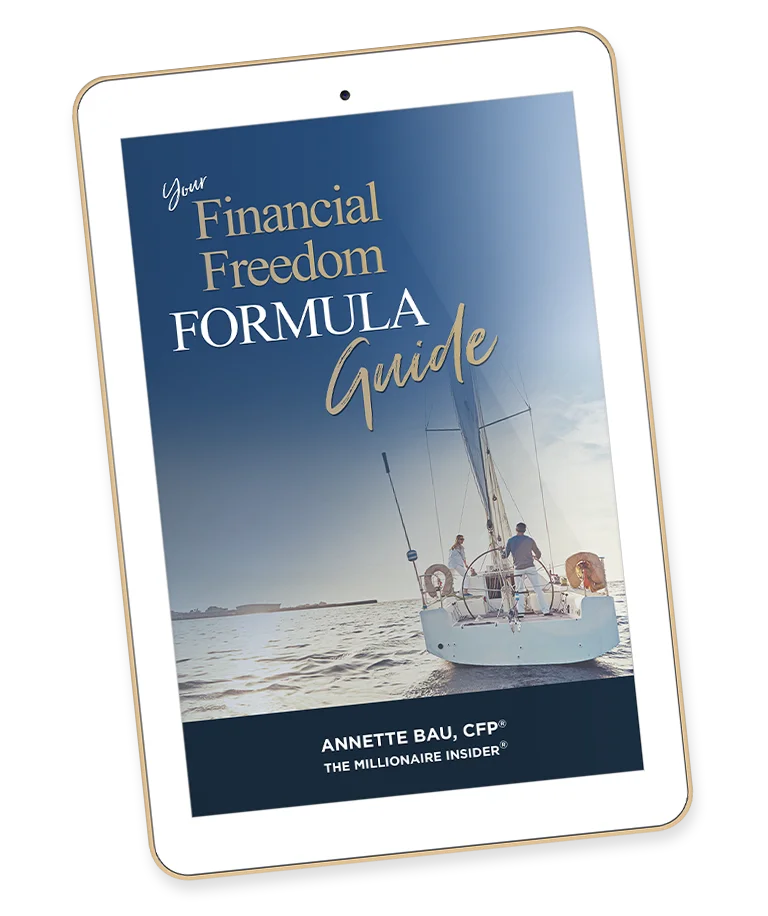Life insurance allows you to leave money to people who will suffer a loss if you die.
That is an important way to provide for those you care about and want to protect. And it is a critical part of a successful financial plan.
A life insurance contract is an agreement between the policy owner and the insurance company that underwrites the policy.
In exchange for the money you pay to receive the insurance coverage, the insurance company (insurer) agrees to pay your loved ones or business partner (beneficiaries) a predetermined amount of money when you die.
For example, if you earn $50,000 annually and die, your income can no longer be used to pay your family’s bills. If you own life insurance at your death, the company will pay your chosen beneficiary a predetermined amount. The amount paid to your beneficiary will cover all or some of the loss caused by your death.
Disclosure
All materials and intellectual property are copyrighted by MillionaireSeries.com®.
This information is for educational purposes only. It is not intended to replace any advisor or specialist or provide any investment, financial, tax, retirement, planning, or healthcare advice.
By reading this, you agree to hold MillionaireSeries.com® and its affiliates harmless for results achieved or not achieved.
Why is it important?
One of the best analogies to explain the importance of purchasing insurance isn’t because you will die but because those you love will live. 
Because you love them, you want their future to be bright and financially secure. You can download the guide to get started here: Financial Freedom Formula: guide
Purchasing coverage provides your loved ones the ability to make choices.
For example, it could allow your spouse a choice to continue to work or not have to work outside the home. It helps to ensure that your family can remain in their home and your kids can stay in their school of choice or attend college, to name a few scenarios.
If you have a business, purchasing life insurance can enable your partner or employees to maintain the company and pay your spouse for your percentage of ownership. This will help assure you don’t lose all the value you worked to build.
Insurance proceeds generally pass tax-free to the beneficiary, another benefit of owning it.
Terms you need to know:

Policy
A policy is a contract between the owner (you, a trust, or another legal entity) and the insurance company. This can also be referred to as “coverage.”
Coverage
The amount of the insurance policy death benefit
Premium Payments
The payments you make to the insurance company for the coverage.
Policyholder
The policy owner is typically you, your trust, or your business entity.
Claim
A claim is a formal request by a policyholder to an insurance company to pay the policy’s death benefit.
Death Benefit
The death benefit is the amount the insurance company will pay out in the event of your death.
Beneficiaries
The people or entities (such as a business or trust) you name to receive the policy payout should you die.
Medical Exams
Most policies require a medical exam before issuing coverage to you.
What are the types of coverage?
There are two different types of coverage. The types of coverage are “term” and “permanent” coverage.
Permanent Insurance
A permanent insurance policy is commonly referred to as whole life insurance. It generally accumulates cash value and can last for your entire life.
Term Life Insurance
In comparison, term insurance is often referred to as pure coverage and provides coverage only for a certain period.
There are also other types of coverage, including universal life insurance and variable universal life.
If you have questions about life insurance or other financial matters, click here:

Universal Life (UL)
Universal life is referred to as a UL. It may have an investment component and lower premiums like term insurance.
Most UL policies have a flexible-premium option meaning you can pay different amounts depending on how the investment component performs. Other UL policies offer a lump sum (single premium) or fixed scheduled premiums.
Variable Universal Life (VUL)
A variable universal life policy (VUL) is a form of permanent insurance. It contains a built-in element that allows the cash component to be invested in subaccounts that may produce a greater return than traditional insurance.
Like UL, the premiums are flexible. A VUL allows the cash value to be invested in various investment subaccounts with varying degrees of risk.
The sub-accounts in the policy are like a mutual fund. And while the subaccount returns can be significant, they can also result in substantial losses.
What are the differences between coverages?

Term insurance is a temporary solution to provide a lump sum payout if you die.
Typically, it is for a specific period such as 10, 20, or 30 years (hence “term”). Insurance experts often call it “rented coverage,” as it accumulates no value and will expire at the end of the term. However, it is very cheap to obtain depending on age, health, gender, and term length.
Whereas whole life insurance was created to last your “whole life.”
It is referred to as permanent coverage because it is designed to last until you die, unlike term insurance, which ends at a specific date.
Whole life also has a savings component.
True whole life insurance is not an investment but does have a cash value component that grows from a fixed account like a savings account.
Life insurance is generally purchased for the benefit of your partner or spouse, kids, college, company, and business partners.
If you want to buy life insurance for another person, you must prove you have an insurable interest in their life. An insurable interest means that because of the insured’s death, you will face a loss that will negatively impact you. The most common losses are financial or emotional.
However, there are additional cases where it’s part of an estate plan. For instance:
- Supporting a family member or child with a disability or a special need
- Options to mitigate death taxes
- Liquidity when you die (This is generally caused by having illiquid assets, such as real estate or a closely held business.).
How much life insurance do you need?
Many insurance experts recommend that your policy covers 10-20 years of earnings. The amount of coverage you need depends on other assets you own, your age, and your financial obligations.
Let’s assume you earn $50,000 a year.
First, determine how much of the $50,000 you need each year to fund your current living expenses and retirement.
If you need the entire $50,000 a year and assume no raises, you need $500,000 to $1,000,000 of insurance coverage. This would provide your beneficiaries with 10 or 20 years of your earnings. (i.e., $50,000 x 10 = $500,000 and $50,000 x 20 = $1,000,000).
If you need support with your money or mindset, start here:

Next, take the coverage from work and the liquid assets you do not require for retirement and subtract the total from the insurance coverage.
We will use $1,000,000 since most advisors share that they rarely find a beneficiary complaining that they have too much money when a loved one dies.
If you have $250,000 of coverage at work and $250,000 of cash or investments not earmarked for retirement, you would need an additional $500,000 of life insurance to cover the 20 years of lost salary. The calculation is $1,000,000-$500,000.
While this illustration is for example purposes only, you may need more or less coverage, depending on your situation. When purchasing life insurance, the most critical decision is to buy the amount you need.
How Much Does Life Insurance Cost?

Term insurance costs less when you are younger. Whole-life coverage is more expensive and thus, has higher premiums because of the savings component and lifetime payout. Your life expectancy determines the cost of insurance coverage.
The primary components of life insurance pricing include your age, gender, health, family health history, lifestyle, and type of coverage you purchase.
Lifestyle includes the activities of the insured. Some activities are considered hazardous and may increase the cost of the insurance.
Hazardous activities include race car driving, sky diving, flying private planes, or scuba diving, to name a few.
Health is also a significant factor in the cost you pay for insurance coverage. Individuals who are overweight or taking various medications typically pay more because they present an increased risk to the insurance company.
Conclusion – “What is Life Insurance?”
In conclusion, protecting your loved ones if you die prematurely is critical to a successful financial plan. Life insurance is an alternative if you are not wealthy or will have liquidity issues at your death.
A financial advisor or insurance professional can help you determine the amount of coverage you need and the best type of policy.
An insurance professional can provide quotes and guide you in determining the best options for you and your loved ones or business, depending on your situation.

